Last updated on March 19, 2024
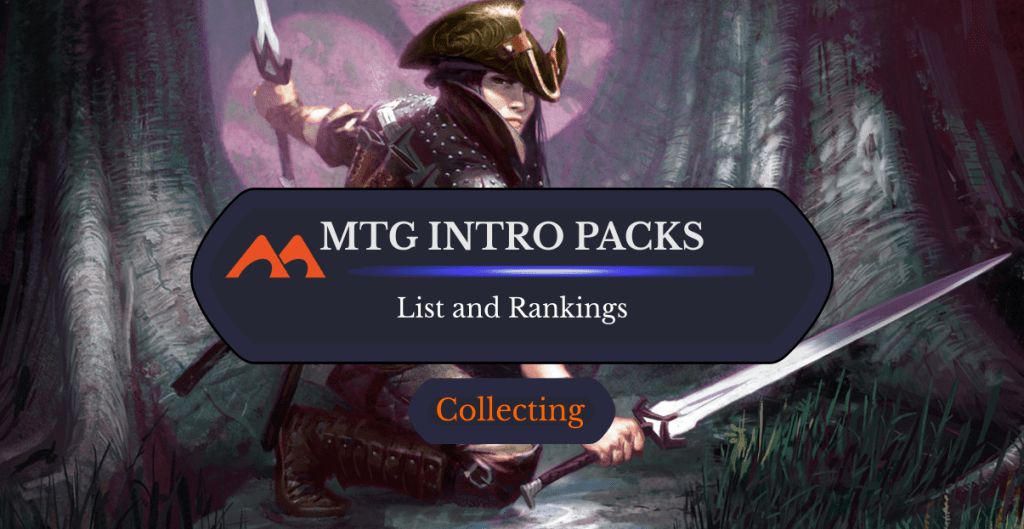
Tireless Tracker | Illustration by Eric Deschamps
Greetings planeswalkers! Magic’s history features plenty of discontinued products, including the brief run of intro packs. These preconstructed starter decks began with 2008's Shards of Alara and ended with Kaladesh in 2016.
But how did they begin, and what was in intro packs? Which products have taken their place? Lastly, which were the best intro decks ever printed? Let's get into it and find out!
What Were Intro Packs?
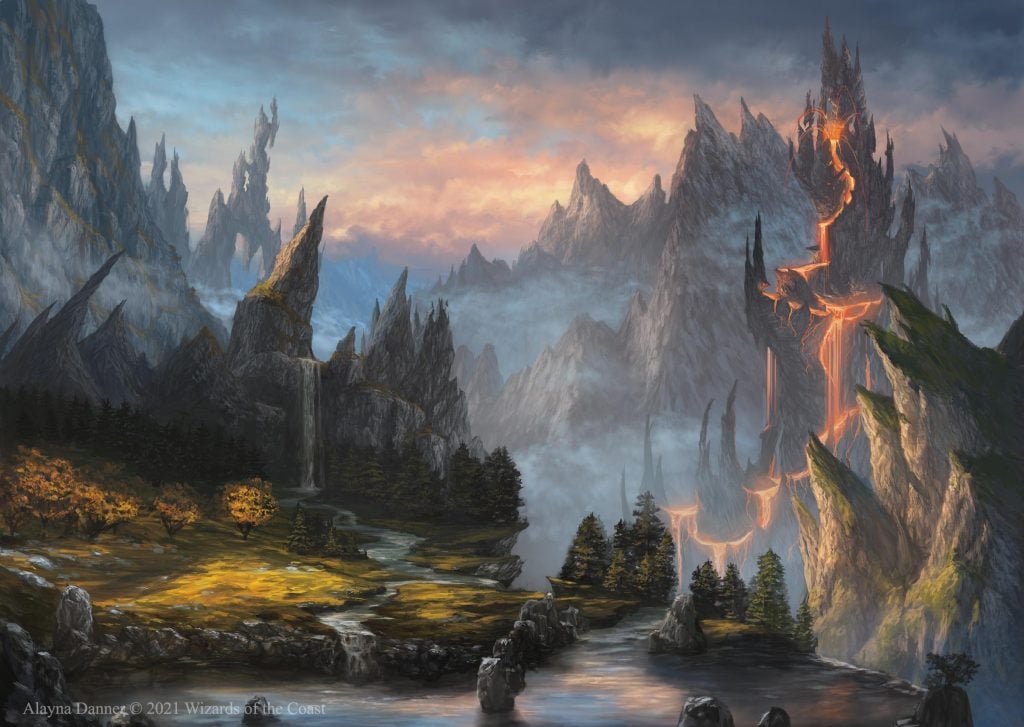
Evolving Wilds | Illustration by Alayna Danner
The predecessor to intro packs was Tempest‘s “theme decks,” which were designed as 60-card decks that showed off one theme from a new set. Most expansions had four of these, and they were primarily mono-colored or bicolored.
Theme decks were discontinued and replaced with intro packs once Shards of Alara released. Intro packs were similar, but they differed in a couple of ways:
- Intro packs were more aimed at outright beginners, featuring more vanilla creatures and less complex cards in general.
- A foil rare was added to intro packs and used to help market them.
- Intro packs were 41-card decks while theme decks had 60 cards.
- A booster pack was added to intro packs, probably as an intended “first hit” of cardboard crack.
What’s in Intro Packs?
Intro packs initially featured 41 cards (one of which was a foil rare), a booster pack, a strategy insert for the deck, and a general “learn to play” guide for Magic. They became 60-card products again once Magic 2011 was released in 2010, and they remained 60 cards until their discontinuation.
Two other small changes happened before discontinuation. A second booster pack was added with Magic 2013, and the foil rares that came with them were changed to foil alternate-art rares once Khans of Tarkir released, featuring art you couldn’t get anywhere else.
Top 10 Intro Pack Decks and Rankings
There were noticeable improvements in quality over the time intro packs were produced, particularly after Core Set 2011 which upgraded them to normal deck size. If I had to recommend intro packs, the degree to which I’d recommend them would scale with how late they came out.
Later packs generally had better card quality and an extra booster pack inside.
#10. Will of the Masses

Creature (19)
Sunblade Elf x2
Selfless Cathar x2
Wall of Mulch
Oreskos Swiftclaw x2
Midnight Guard x2
Living Totem x2
Will-Forged Golem x2
Phytotitan
Siege Wurm x2
Seraph of the Masses x2
Hornet Queen
Instant (10)
Gather Courage
Naturalize
Titanic Growth
Raise the Alarm x3
Devouring Light x2
Sanctified Charge
Meditation Puzzle
Sorcery (6)
Nissa's Expedition
Triplicate Spirits x2
Overwhelm
Feral Incarnation x2
Land (25)
Will of the Masses has a couple of things going for it, namely Hornet Queen and pretty good convoke synergy. Some of the draws here will undoubtedly be a bit clunky, but curving Raise the Alarm into fatties is a nice play pattern.
- Everything you need in one ready-made deck.
#9. Vampiric Thirst

Creature (21)
Indulgent Aristocrat x2
Olivia's Bloodsworn
Ravenous Bloodseeker x2
Sanguinary Mage x2
Vampire Noble x2
Bloodmad Vampire x2
Stromkirk Mentor x2
Mad Prophet
Voldaren Duelist x2
Twins of Maurer Estate x2
Markov Dreadknight
Incorrigible Youths x2
Instant (2)
Fiery Temper x2
Sorcery (9)
Macabre Waltz
Murderous Compulsion
Tormenting Voice x2
Alms of the Vein x2
Malevolent Whispers x2
Burn from Within
Enchantment (3)
Sinister Concoction
Senseless Rage
Creeping Dread
Land (25)
There’s no rare value here really, but the basic madness synergies you’d expect from Draft are nicely distributed. Vampiric Thirst is a competent aggro deck with some exciting highs (mostly whenever you get madness reductions) for a beginner.
#8. Assemble Victory
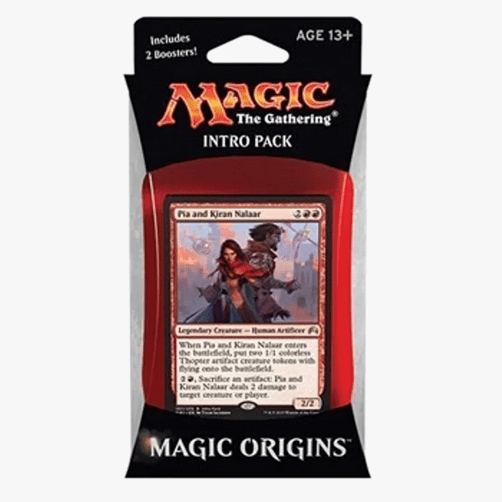
Creature (24)
Bellows Lizard
Mage-Ring Responder
Maritime Guard
Pia and Kiran Nalaar
Ramroller
Runed Servitor
Separatist Voidmage
Subterranean Scout
Thopter Engineer
Whirler Rogue
Aspiring Aeronaut x2
Bonded Construct x2
Chief of the Foundry x2
Ghirapur Gearcrafter x2
Guardian Automaton x2
Reclusive Artificer x2
Volcanic Rambler x2
Instant (3)
Disperse
Artificer's Epiphany x2
Enchantment (5)
Ghirapur Aether Grid x2
Infectious Bloodlust x3
Artifact (4)
Meteorite
Prism Ring
Alchemist's Vial x2
Land (24)
Evolving Wilds
Island x10
Mountain x13
Assemble Victory has a couple more stinkers than I’d like (Bellows Lizard and Maritime Guard), but Pia and Kiran Nalaar is a great rare! The Thopter-making creatures also played nicely in this Limited format.
#7. Rallying Cry
No products found.Creature (26)
Angel of Renewal
Angelic Captain
Chasm Guide
Hero of Goma Fada
Ondu Champion
Resolute Blademaster
Expedition Envoy x2
Firemantle Mage x2
Kor Bladewhirl x2
Kor Castigator x2
Kor Entanglers x2
Makindi Patrol x2
Shatterskull Recruit x2
Cliffside Lookout x3
Reckless Cohort x3
Instant (8)
Inspired Charge x2
Lithomancer's Focus x2
Outnumber x2
Smite the Monstrous x2
Enchantment (1)
Land (25)
Blighted Gorge
Evolving Wilds x2
Sandstone Bridge x2
Mountain x10
Plains x10
No products found. is a pretty focused aggro deck, at least for an intro pack. The curve is good and every creature in the deck is an ally.
No products found.
#6. Desperate Stand
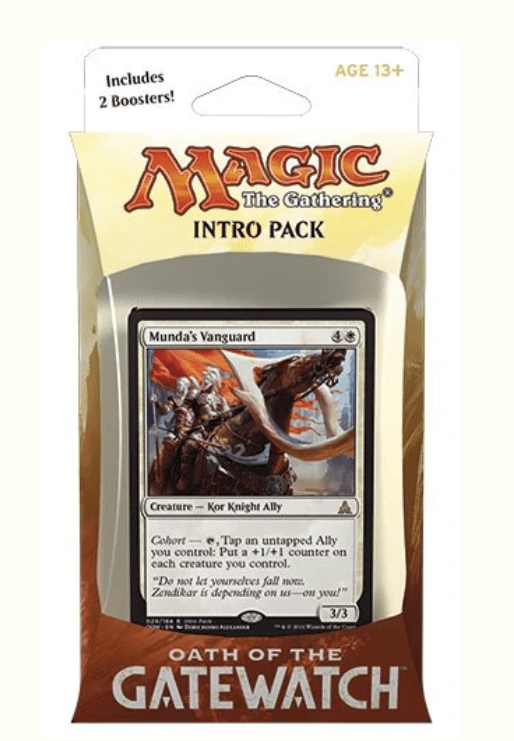
Creature (26)
Cliffside Lookout
Expedition Envoy x2
Kor Castigator x2
Ondu War Cleric x2
Serene Steward x2
Kalastria Healer x2
Kor Scythemaster x2
Vampire Envoy x2
Drana's Emissary
Spawnbinder Mage x2
Drana's Chosen
Zulaport Chainmage x2
Cliffhaven Vampire
Kor Entanglers x2
Munda's Vanguard
Malakir Soothsayer
Instant (6)
Dazzling Reflection
Gideon's Reproach x2
Tar Snare x2
Smite the Monstrous
Sorcery (3)
Allied Reinforcements x2
Dutiful Return
Land (25)
Desperate Stand is another allies deck, though I’d give it a slight edge in terms of card quality. Every single creature in this deck is an ally, and most of the better payoffs for allies in Battle for Zendikar block have been included.
This gives the deck some very nice synergy that would make it a joy to play for a beginner. Getting everything to click could lead to some great “aha!” moments.
#5. Demonic Deals
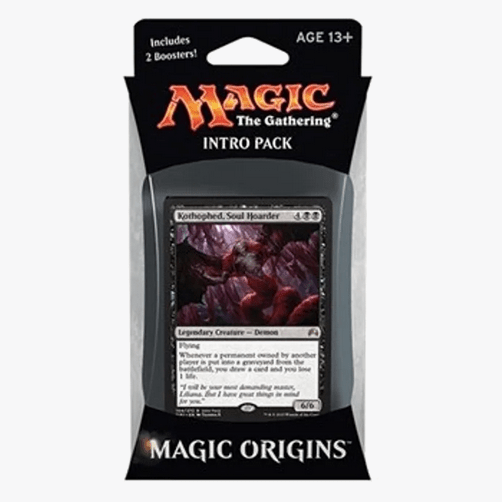
Creature (20)
Cobblebrute
Fleshbag Marauder
Kothophed, Soul Hoarder
Revenant
Blazing Hellhound x2
Enthralling Victor x2
Malakir Cullblade x2
Returned Centaur x2
Shambling Ghoul x2
Nantuko Husk x3
Undead Servant x3
Instant (7)
Chandra's Fury
Ravaging Blaze
Unholy Hunger
Cruel Revival x2
Fiery Impulse x2
Sorcery (7)
Chandra's Ignition
Necromantic Summons
Nightsnare
Reave Soul
Act of Treason x3
Enchantment (1)
Land (25)
Evolving Wilds
Mountain x10
Swamp x14
Synergy is an important thing for intro decks because they work best when you can do cool plays for a beginner like Act of Treason and Nantuko Husk. Demonic Deals doesn’t have the best rares and has a bit of filler, but the Act of Treason aspect of this deck is pretty good for an intro pack.
#4. Hunting Pack
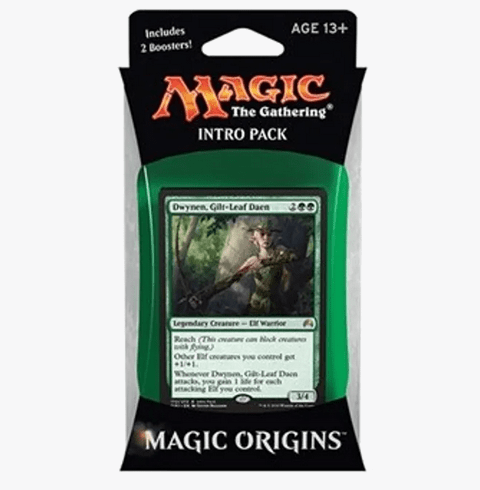
Creature (25)
Dwynen, Gilt-Leaf Daen
Hitchclaw Recluse
Managorger Hydra
Skysnare Spider
Deadbridge Shaman x2
Dwynen's Elite x2
Elvish Visionary x2
Eyeblight Assassin x2
Leaf Gilder x2
Shaman of the Pack x2
Sylvan Messenger x2
Thornbow Archer x2
Yeva's Forcemage x2
Timberpack Wolf x3
Instant (2)
Sorcery (6)
Macabre Waltz
Nightsnare
Eyeblight Massacre x2
Joraga Invocation x2
Enchantment (3)
Consecrated by Blood
Weight of the Underworld x2
Land (24)
Evolving Wilds
Forest x11
Swamp x12
Managorger Hydra is another one of the better intro pack rares out there, and the rest of Hunting Pack is pretty solid elf tribal. The non-elf filler here (Timberpack Wolf, Hitchclaw Recluse) isn’t as bad as the filler in P&K’s deck.
#3. Vicious Cycle
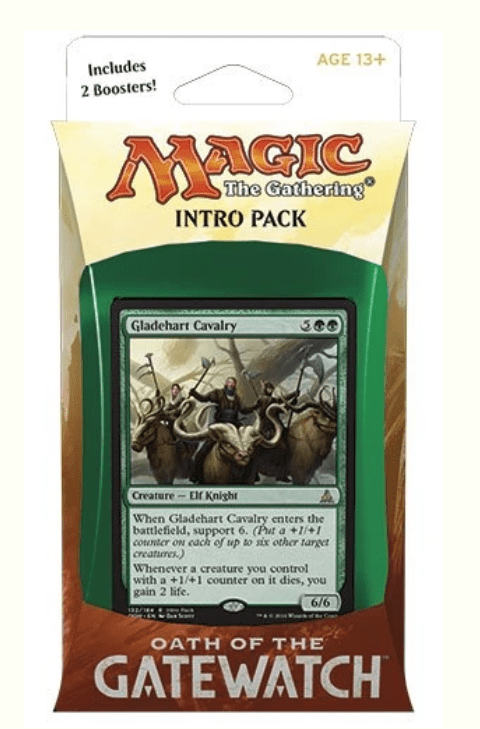
Creature (23)
Blisterpod x2
Carrier Thrall x2
Loam Larva x2
Rot Shambler x2
Stalking Drone x2
Essence Depleter
Voracious Null
Netcaster Spider x2
Null Caller
Broodhunter Wurm
Smothering Abomination
Seed Guardian x2
Kozilek's Pathfinder
Brood Monitor
Baloth Null
Dread Defiler
Instant (8)
Vines of the Recluse
Altar's Reap
Corpse Churn x2
Grasp of Darkness
Natural Connection x2
Pulse of Murasa
Sorcery (4)
Bone Splinters x2
Oblivion Strike x2
Land (25)
Blighted Woodland
Evolving Wilds
Fertile Thicket x2
Wastes x4
Swamp x8
Forest x9
Vicious Cycle’s aristocrats is a pretty fun archetype for an intro pack with lots of play to it you might not expect from a starter product. Sacrificing Blisterpod and Carrier Thrall to Bone Splinters and Smothering Abomination makes for a great introduction to a classic Magic archetype!
#2. Dangerous Knowledge

Creature (14)
Sanguinary Mage
Thermo-Alchemist x2
Ingenious Skaab x2
Niblis of Dusk
Weaver of Lightning x2
Pyre Hound
Niblis of Frost
Mercurial Geists x2
Silburlind Snapper
Bedlam Reveler
Instant (8)
Turn Aside
Galvanic Bombardment x3
Convolute
Geistblast x2
Dance with Devils
Sorcery (13)
Take Inventory x3
Incendiary Flow
Drag Under
Pieces of the Puzzle
Make Mischief x2
Shreds of Sanity x2
Reduce to Ashes
Pore Over the Pages
Rise from the Tides
Land (25)
Izzet () spells was a really great Draft archetype, and Dangerous Knowledge's‘s take on it is pretty good. It has a nice mix of spells and payoffs as well as two great rares.
- Magic the Gathering: MTG Eldritch Moon: Intro Pack / Theme Deck: Dangerous Knowledge (includes 2 Booster Packs & Alternate Art Premium Rare Promo) Blue / Red - Niblis of Frost
#1. Unearthed Secrets
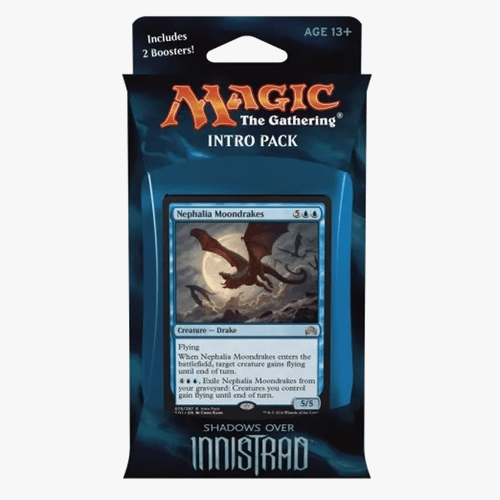
Creature (21)
Erdwal Illuminator x2
Quilled Wolf x2
Stitched Mangler x2
Byway Courier x2
Gloomwidow
Graf Mole x2
Tireless Tracker
Drownyard Explorers x2
Briarbridge Patrol x2
Pack Guardian
Thornhide Wolves x2
Watcher in the Web
Nephalia Moondrakes
Instant (5)
Confront the Unknown x3
Jace's Scrutiny
Aim High
Sorcery (4)
Press for Answers
Root Out
Gone Missing x2
Enchantment (4)
Ghostly Wings
Ongoing Investigation x2
Ulvenwald Mysteries
Artifact (1)
Land (25)
Two words: Tireless Tracker! There aren’t a lot of Constructed all-stars in intro packs, so just having Tracker in a bad deck would’ve put this near the top.
But Unearthed Secrets isn’t just Tracker and 59 cards. It’s actually a fairly competent rendition of a very fun Draft archetype. Having so many good mana sinks via Clues solves the common intro pack problem of “I played out all my vanilla creatures, now what?”
Does MTG Still Make Intro Packs?
No. Intro packs were officially discontinued with Kaladesh and were replaced with “planeswalker decks.” Planeswalker decks filled a similar purpose but replaced the intro pack rares (which were almost always big clunky creatures) with planeswalkers. They also had four unique cards that weren’t available in booster packs, but all of the cards were designed to be intentionally weak to avoid causing supply issues in Standard.
The last planeswalker decks came from Core Set 2021 and featured a mix of cards from then Standard-legal sets. The planeswalker deck paradigm that lasted about four years changed once again, this time to set Commander decks with Zendikar Rising.
Why Were Intro Packs Discontinued?
The reason for the move from intro packs to planeswalker decks was discussed at length by Mark Rosewater (head designer of MTG) in a Daily MTG article. He describes an intended four step on-ramp for new players to Magic, and says that the replacement for intro packs would need to fill this niche:
Second Product—???
This was the area we needed to fill. Core sets were supposed to fill this slot before, but we found that randomized boosters made for a very inconsistent experience. Part of easing you into the game was keeping a continued focus, which the core sets weren't particularly good at.
The first thing we did was try to figure out the goals of the product that was missing.
• It has to be preconstructed
Deck building is a fun part of Magic, but it's an added complication and we didn't want players focusing on it until the third product, so we knew we wanted this product to be pre-built and playable out of the box.
• It has to keep the same focus
As I mentioned above, we want the early products to keep a cohesive focus. That meant we had to look at what the first products were doing and then stay consistent. Both sample decks and Magic Duels had a strong Planeswalker focus, so that is where we started.
• It has to properly transition
On one side, we had products that delivered the simplest gameplay. On the other, we had a product where you built your own deck. That meant that this product was somewhere in the middle. We built the deck for you, but it could be a little more complicated.
• It has to be part of the larger product line
Another problem we had with the core sets is that it was about something different than the rest of Magic. New players look to established players and the established players are all about the current set. This product had to be something that didn't stand alone but felt like an integrated part of the current Magic world.
• It has to be exciting
We didn't want this product to be something established players felt obligated to buy, but we also didn't want them dismissing it to the players who had it. It needed to walk a tightrope between being cool enough that the established players wanted to take a look at it, but not so compelling that they felt they had to buy it.
That's a lot of restrictions, but we were determined to find something that addressed them all. I'm happy to say we did. So, it's time for me to introduce you to the new product that will be replacing Intro Packs, and then walk you through what it contains and our thoughts behind it…
Mark Rosewater
Rosewater points out some strengths of the new model but doesn’t talk much about what the old model had to offer. My speculative guess is that a couple of factors ultimately killed off intro packs and planeswalker decks:
- Commander is the most popular paper format and a serious money maker for both shops and WotC. It breathes life into the community and the wider card pool by having so many viable configurations and fringe uses for so many cards. More Commander equals more money as long as Wizards doesn’t overprint and kill the format (unlikely!)
- Two changes to Magic have diminished the need for an intro pack product: MTG Arena and its related Arena starter kit.
- Arena has a passable tutorial and color challenges to guide through some of the more complicated aspects of the game. Free accounts that complete these challenges also end up with a bunch of cards and 10 preconfigured theme decks.
- Starter kits continue the intro paper aspect while also leading players to MTGA by hand.
- As anyone who's ever heard of freemium games knows by now, F2P games can be serious money makers. Most players spend a good amount in the long term and whales just spend seemingly endless amounts of money. I can just picture Hasbro fat cats talking about how much more money they’d make by getting you started on Arena rather than paper Magic!
What Was the MSRP of Intro Packs?
Your average intro pack would cost you about $15 to $20. Current prices for this product tend to be inflated due to scarcity because intro packs haven’t been in print for several years.
Intro Packs vs. Starter Decks
Intro packs were discontinued and replaced with other products (Commander decks, Arena starter kit). The Arena starter kit is now the intended starter product for new Magic players, likely due to the point I made above: getting players into Arena is a good way to make a bunch of money!
It also adequately fills the role of a paper starter product because the two 60-card decks included play just fine whether you’re online or offline.
Where Can You Get Old Intro Packs?
Most online retailers should still have intro packs if you’re really interested in picking one up, from Amazon to TCGPlayer and more.
Can Old Intro Decks Still Be Purchased?
Yes, but I probably wouldn’t if I were you. A quick Amazon search reveals a whole bunch of them available now at seriously inflated prices. You'd be far better off buying them as singles from a vendor, or just building your own “intro decks” with Draft bulk and a handful of rares.
Consider using these kind of configurations to teach your friends if you’ve been drafting a lot of Dominaria United:
- An Izzet spells deck that shows off dudes and spells with cards like Balmor, Battlemage Captain, Ghitu Amplifier, and Lightning Strike.
- A Rakdos () sacrifice deck that introduces newcomers to concepts like treason and take your guy (In Thrall to the Pit and Bone Splinters).
- A Selesnya () tokens deck that shows off token gameplay with Captain's Call and Strength of the Coalition.
- A Golgari () self-mill deck with Uurg, Spawn of Turg, Eerie Soultender, and Urborg Repossession that shows off how the graveyard can be used.
- An Azorius () spells deck with Protect the Negotiators, Raff, Weatherlight Stalwart, and some Tolarian Geysers.
This example combinations represent each color twice and presents a good variety of playstyles without too much complexity. Players who battle these makeshift starter decks against each other will get a good taste for play patterns that come up over and over again as they play Magic.
I’ve avoided anything domain-related because new players already have their hands full!
Are Intro Pack Cards Legal?
Yes, but not in Standard because the last Standard-legal Intro pack was released in Eldritch Moon. You can play any of the cards from them in Pioneer, Modern, Legacy, or Commander unless they’re otherwise banned.
An Aside on Set Commander Decks
One novel thing about Commander precons is that they’re objectively poor products for a first-timer, unlike past intro and planeswalker decks. Sorry, it’s true!
Commander hits that weird spot of being a casual format with a metric ton of potential complexity. A beginner can understand tapping two Forests to cast Grizzly Bears pretty easily, but they’ll doubtlessly struggle with a 99-card deck full of splashy rares. Having to worry about three other players and a huge deck full of Singletons is just no way to learn a game. Starting with the basics is essential or newcomers quit because they feel overwhelmed.
Where these products excel is intermediate players, or players that know the rules but aren’t very good or competitive. The Commander precons provide an easy route for balanced multiplayer fun at your LGS. They’re also great value and rather competently made while old intro packs were often full of Draft bulk and one shiny bulk rare.
Commander decks are a generally better product for most players, but they don’t make a suitable entry road into Magic itself.
Wrap Up
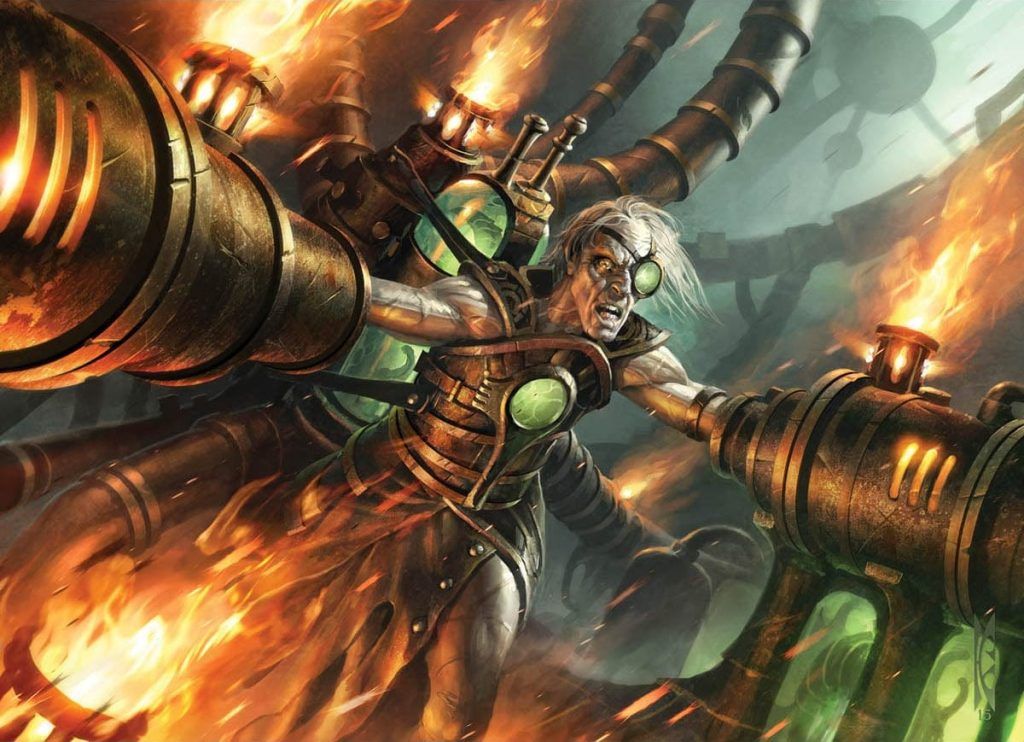
Thermo-Alchemist (Eldritch Moon) | Illustration by Raymond Swanland
It’s a bit odd to write about a discontinued product, especially one that's taken on another form entirely! Hopefully you still feel empowered to teach your friends about Magic. There may be no better time than the present to get into it since there’s a new Standard format (0 bans!), a top-notch Draft format, and a returning Pro Tour next year.
What do you think? Did you enjoy intro packs while they were printed? Let me know in the comments or over on Draftsim’s Twitter.
Until next time, may your friends always share some hobbies with you! Mine have mostly left this game and now just play poker…
Note: this post contains affiliate links. If you use these links to make a purchase, you’ll help Draftsim continue to provide awesome free articles and apps.
Follow Draftsim for awesome articles and set updates:


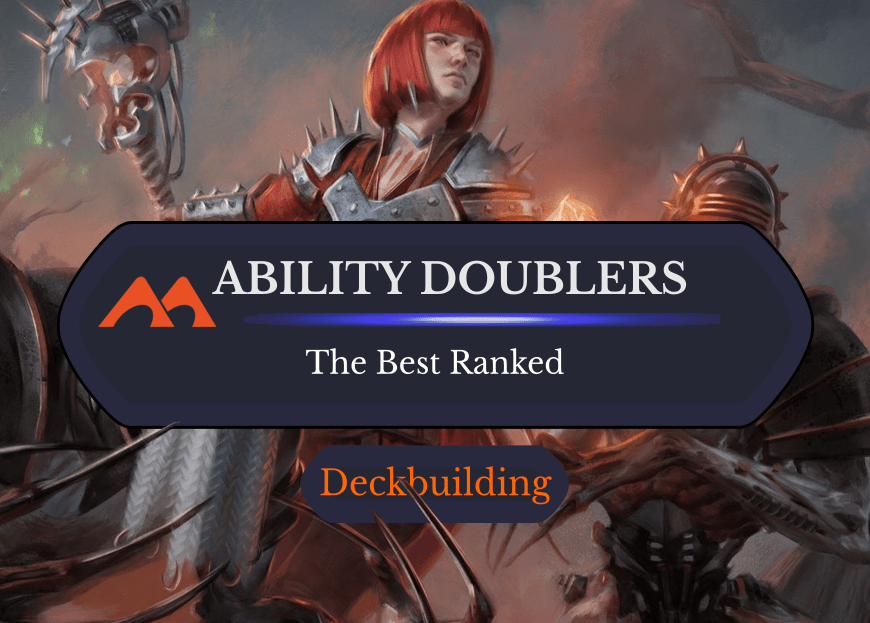
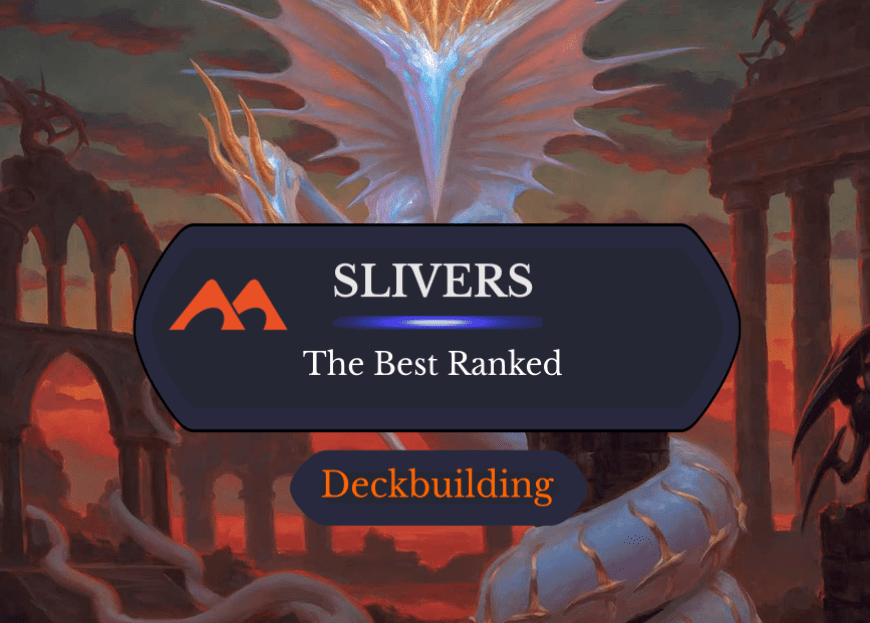
Add Comment